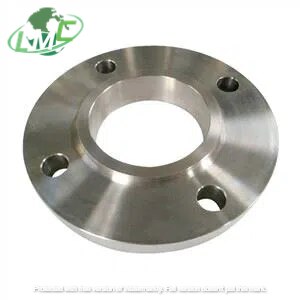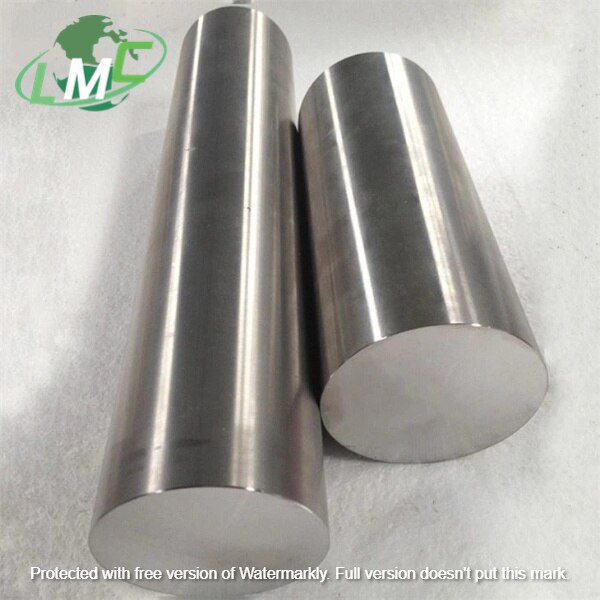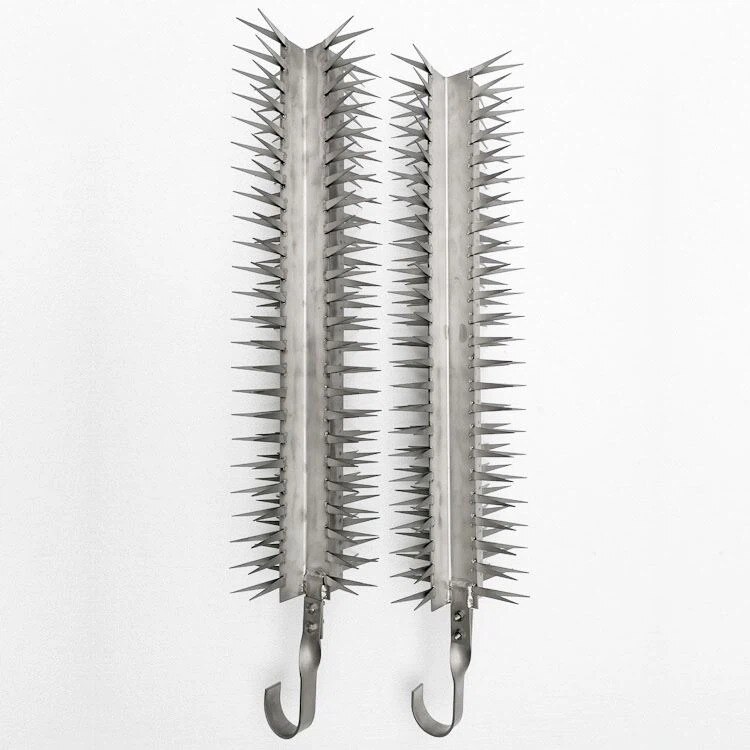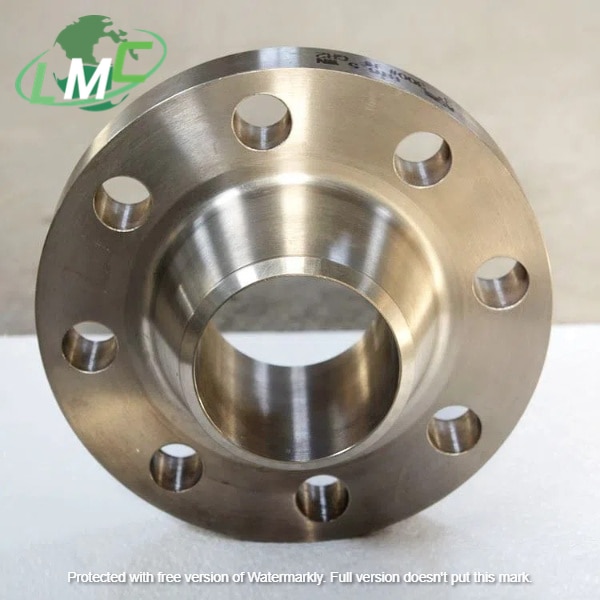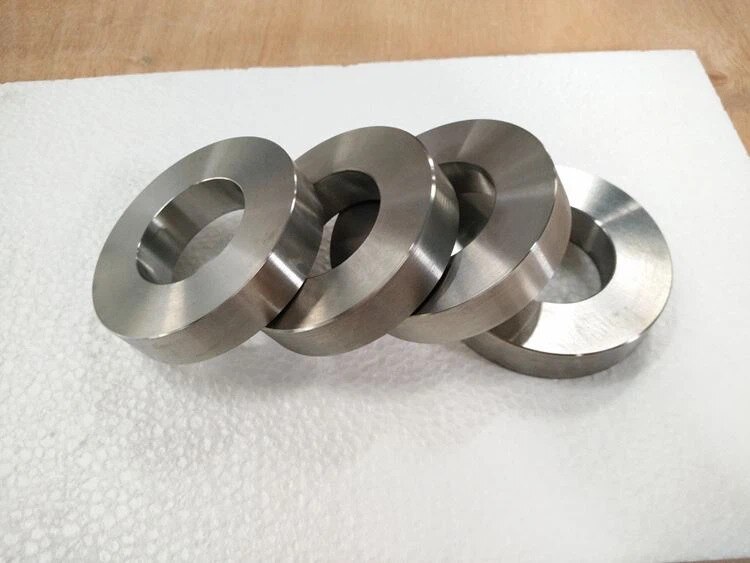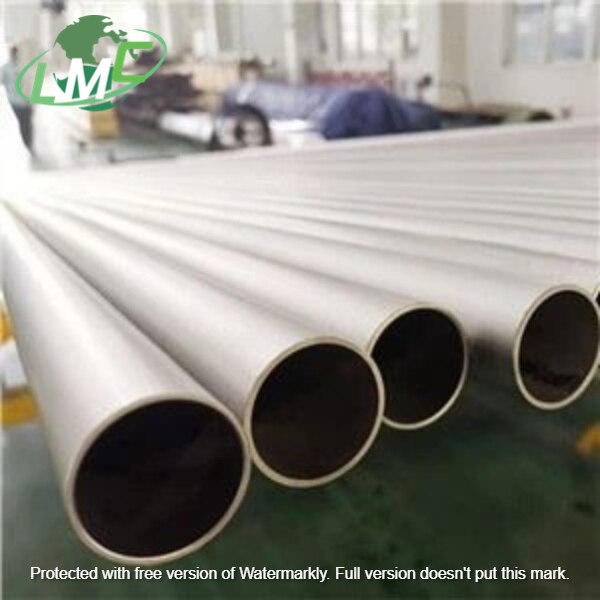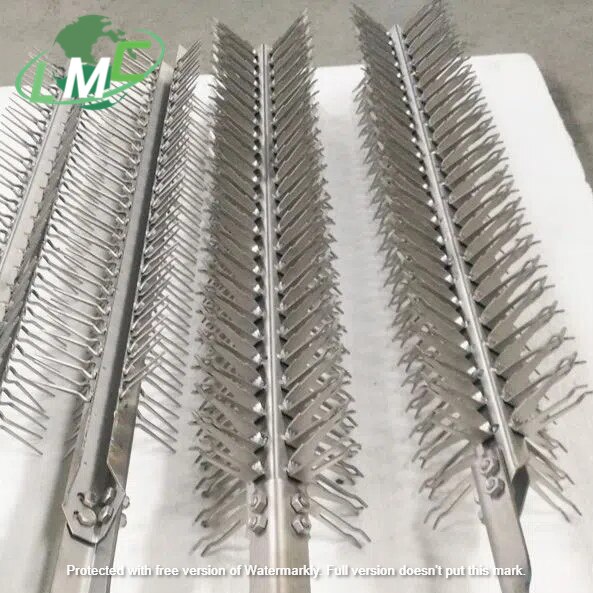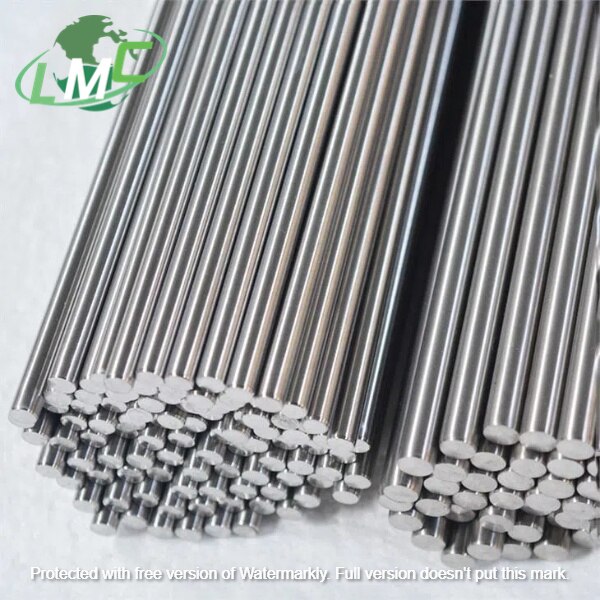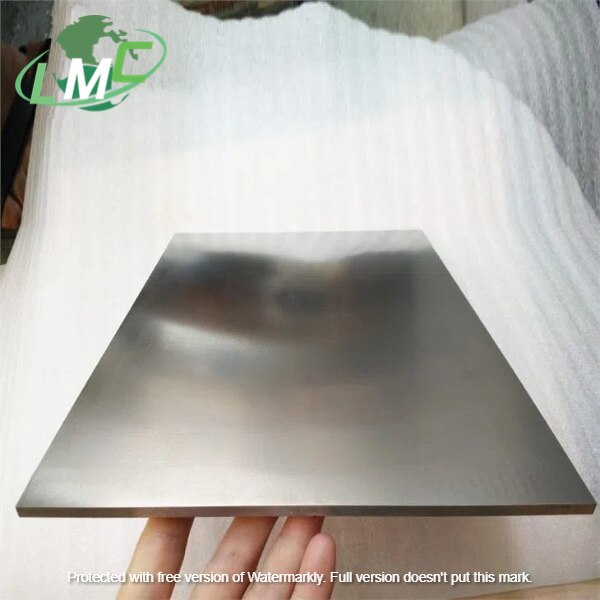Product Name: Titanium Bar
Standard: ASTM B348
Material: GR1, GR2, GR5, GR7, GR12
Shape: Round, Square, Flat, Hex
Diameter: 6-350mm
Length: Max 6000mm
Surface: Bright
Gr7 Titanium Rod
Grade 7 titanium alloy is an alloy made of pure titanium by adding a small amount of noble metal Pd, which has excellent corrosion resistance to acidic media. The alloy has good processing, forming and welding properties, but contains precious metal Pd and is relatively expensive.
Product Information
Standard: ASTM B348, AMS 4928, ASTM F67,ASTM F136
Grade: GR1, GR2, GR4, GR5, GR5 ELI, GR7, GR12, GR23, TC11, TC21, Ti-15333, Ti-662 etc.
Russian Grade: BT1-100,BT1-0,BT6 etc.
Shape: Round, Square, Flat, Hex
Diameter: 3-350mm
Length: up to 6000mm, random length is also ok and the price is lower
Tolerance: H8, H9, H10, H11, H12, H13K9, K10, K11, K12 or as per your requirements
Surface: Polishing, Pickling
Condition: R/M/Y
LADHANI METAL CORPORATION, MUMBAI, INDIA
Company Information
Ladhani Metal Corporation.
We are committed to integrate engineering steel resources in India and serve the global engineering steel market. Our company has more than 32 years of experience in steel researching, production, managing and sales.
In the aspect of resources and information, we have established cooperative and stronger relationship with nearly hundred enterprises, either state-owned or private owned in India.
What’s more, we have built long, deep and close business relationship with dozens of steel company, Sharing and holding equities with several steel enterprises. Because of the close cooperation with steel companies and our pioneering spirit, which can ensure us stay at the top competition, and ensure our customers get what they really want!
FOR MORE DETAIL CONTACT US AT :-
ladhanimetal@gmail.com
ladhanimetals@gmail.com
www.ladhanimetal.in
www.ladhanimetal.com
LADHANI METAL CORPORATION, MUMABAI, INDIA,
AVAILABLE AT FOLLOWING LOCATION:-
Adilabad, Agartala, Agra, Ahmedabad, Ahmednagar, Ajmer, Akola , Aligarh , Alipore , Allahabad , Alleppey , Almora , Alwar , Alwaye , Amalapuram , Amaravati , Ambala , Amreli , Amritsar , Anakapalle , Anand , Anantapur , Andhra Pradesh , Anna Road , Arakkonam , Arunachal Pradesh , Asansol , Aska , Assam , Aurangabad , Azamgarh , Bagalkot , Bahraich , Balaghat , Balangir , Balasore , Ballia , Banasanktha , Banda , Bangalore , Bankura , Barabanki , Barabazaar , Baramulla , Barasat , Bardoli , Bareilly , Barmer , Bastar , Basti , Beawar , Beed , Begusarai , Belgaum , Bellary , Berhampur , Bhadrak , Bhagalpur , Bharatpur , Bharuch , Bhatinda , Bhavnagar , Bhilwara , Bhimavaram , Bhiwani , Bhojpur , Bhopal , Bhubaneswar , Bhusaval , Bidar , Bihar , Bijapur , Bijnor , Bikaner , Bilaspur , Birbhum , Budaun , Bulandshahar , Buldana , Burdwan , Cachar , Calcutta , Calicut , Cannanore , Chamba , Chamoli , Chandigarh , Chandrapur , Changanacherry , Channapatna , Chattisgarh , Chengalpattu , Chennai , Chhatarpur , Chhindwara , Chikmagalur , Chikodi , Chitradurga , Chittoor , Chittorgarh , Churu , Coimbatore , Contai , Cooch Behar , Cuddalore , Cuddapah , Cuttack , Darbhanga , Darjeeling , Darrang , Dehra Gopipur , Dehradun , Delhi , Delhi , Deoria , Dhanbad , Dharamsala , Dharmanagar , Dharmapuri , Dharwad , Dhenkanal , Dholpur , Dhule , Dibrugarh , Dinajpur , Dindigul , divisionname , Dungarpur , Durg , Eluru , Ernakulam , Erode , Etah , Etawah , Faizabad , Faridabad , Faridkot , Fatehgarh , Fatehpur , Ferozpur , Gadag , Gandhinagar , Gaya , Ghaziabad , Ghazipur , Giridih , Goa , Goalpara , Gokak , Gonda , Gondal , Gorakhpur , Gudivada , Gudur , Gujarat , Gulbarga , Guna , Guntur , Gurdaspur , Gurgaon , Guwahati , Gwalior , Hamirpur , Hanamkonda , Hardoi , Haryana , Hassan , Haveri , Hazaribagh , Himachal Pradesh , Hindupur , Hissar , Hooghly , Hoshangabad , Hoshiarpur , Howrah , Hyderabad , Idukki , Indore , Irinjalakuda , Jabalpur , Jaipur , Jalandhar , Jalgaon , Jalpaiguri , Jammu , Jammu kashmir , Jamnagar , Jaunpur , Jhansi , Jharkhand , Jhunjhunu , Jodhpur , Junagadh , Kakinada , Kalahandi , Kanchipuram , Kanniyakumari , Kanpur , Kapurthala , Karaikudi , Karimnagar , Karnal , Karnataka , Karur , Karwar , Kasaragod , Keonjhar , Kerala , Khammam , Khandwa , Kheda , Kheri , Kodagu , Kolar , Kolhapur , Kolkata , Koraput , Kota , Kottayam , Kovilpatti , Krishnagiri , Kumbakonam , Kurnool , Kurukshetra , Kutch , Lakshadweep , Leh , Lucknow , Ludhiana , Machilipatnam , Madhubani , Madhya Pradesh , Madurai , Mahabubnagar , Maharashtra , Mahesana , Mainpuri , Malda , Malegaon , Mandi , Mandsaur , Mandya , Mangalore , Manipur , Manjeri , Mathura , Mavelikara , Mayiladuthurai , Mayurbhanj , Medak , Meerut , Meghalaya , Midnapore , Mirzapur , Mizoram , Monghyr , Moradabad , Morena , Mumbai , Murshidabad , Muzaffarnagar , Muzaffarpur , Mysore , Nadia , Nagaland , Nagaon , Nagapattinam , Nagaur , Nagpur , Nainital , Nalanda , Nalbari , Nalgonda , Namakkal , Nanded , Nandyal , Nanjangud , Narasaraopet , Nasik , Navsari , Nawadha , Nellore , New Delhi , New Mumbai , Nilgiris , Nizamabad , North Eastern , Odisha , Osmanabad , Ottapalam , Palamau , Palghat , Pali , Panchmahals , Pandharpur , Parvathipuram , Patan , Pathanamthitta , Patiala , Patna , Pattukottai , Pauri , Peddapalli , Pharbhani , Phulbani , Pithoragarh , Pollachi , Pondicherry , Porbandar , Prakasam , Pratapgarh , Proddatur , Pudukkottai , Pune , Punjab , Puri , Purnea , Purulia , Puttur , Quilon , Rae Bareilly , Raichur , Raigad , Raigarh , Raipur , Rajahmundry , Rajasthan , Rajkot , Rajouri , Ramanathapuram , Rampur Bushahr , Ranchi , Ratlam , Ratnagiri , Rewa , Rohtak , Rohtas , Sabarkantha , Sagar , Saharanpur , Saharsa , Salem , Samastipur , Sambalpur , Sangareddy , Sangli , Sangrur , Santhal Parganas , Saran , Satara , Sawaimadhopur , Secunderabad , Sehore , Shahdol , Shahjahanpur , Shimla , Shimoga , Shrirampur , Sibsagar , Sikar , Sikkim , Sindhudurg , Singhbhum , Sirohi , Sirsi , Sitamarhi , Sitapur , Sivaganga , Siwan , Solan , Solapur , Sonepat , Sriganganagar , Srikakulam , Srinagar , Srirangam , Sultanpur , Sundargarh , Surat , Surendranagar , Suryapet , Tadepalligudem , Tambaram , Tamilnadu , Tamluk , Tehri , Tenali , Thalassery , Thane , Thanjavur , Theni , Tinsukia , Tiruchirapalli , Tirunelveli , Tirupati , Tirupattur , Tirupur , Tirur , Tiruvalla , Tiruvannamalai , Tonk , Trichur , Trivandrum , Tumkur , Tuticorin , Udaipur , Udhampur , Udupi , Ujjain , Una , Uttar Pradesh , Uttarakhand , Vadakara , Vadodara , Vaishali , Valsad , Varanasi , Vellore , Vidisha , Vijayawada , Virudhunagar , Visakhapatnam , Vizianagaram , Vriddhachalam , Wanaparthy , Warangal , Wardha , West Bengal , Yeotmal , Bangalore , Hyderabad , Chennai , Kolkata , Jaipur , Indore , Thane , Pimpri-Chinchwad , Nashik , Kalyan-Dombivli , Vasai-Virar , Varanasi , Navi Mumbai , Hubli–Dharwad , Tiruchirappalli , Tiruppur , Salem , Mira-Bhayandar , Bhiwandi , Amravati , Noida , Jamshedpur , Bhilai , Cuttack , Firozabad , Kochi , Durgapur , Rourkela , Loni , Siliguri , Ulhasnagar , Sangli-Miraj & Kupwad , Ambattur , Thiruvananthapuram , Davanagere , Kozhikode , Maheshtala , Rajpur Sonarpur , Bokaro , South Dumdum , Gopalpur , Bhatpara , Panihati , Latur , Korba , Kollam , Avadi , Kadapa , Kamarhati , Rampur , Thrissur , Bardhaman , Kulti , Parbhani , Ozhukarai , Bihar Sharif , Panipat , Bally , Aizawl , Dewas , Ichalkaranji , Bathinda , Jalna , Kirari Suleman Nagar , Purnia , Satna , Mau , Sonipat , Farrukhabad , Imphal , Hapur , Arrah , Ambarnath , North Dumdum , New Delhi , Gandhidham , Baranagar , Tiruvottiyur , Thoothukudi , Ramagundam , Silchar , Haridwar , Vijayanagaram , Nagercoil , Sri Ganganagar , Karawal Nagar , Mango , Bulandshahr , Uluberia , Katni , Sambhal , Singrauli , Nadiad , Naihati , Yamunanagar , Bidhannagar , Pallavaram , Munger , Panchkula , Burhanpur , Raurkela Industrial Township , Kharagpur , Hospet , Nangloi Jat , Ongole , Deoghar , Chapra , Haldia , Amroha , Bhind , Bhalswa Jahangir Pur , Madhyamgram , Berhampore , Morbi , Raebareli , Khora, Ghaziabad , Bhusawal , Orai , Phusro , Mehsana , Raiganj , Sirsa , Danapur , Serampore , Sultan Pur Majra , Panvel , Shivpuri , Surendranagar Dudhrej , Unnao , Chinsurah , Alappuzha , Adoni , Katihar , Mahbubnagar , Jorhat , Sasaram , Hajipur , Bongaigaon , Dehri , Madanapalle , Bettiah , Ramgarh , Guntakal , Motihari , Dharmavaram , Medininagar , Phagwara , Hosur , Miryalaguda , Tadipatri , Kishanganj , Jamalpur , Kavali , Buxar , Tezpur , Jehanabad , Gangtok , Assam , Bihar , Chattisgarh , Delhi , Gujarat , Haryana , Himachal Pradesh , Jammu kashmir , Jharkhand , Karnataka , Kerala , Madhya Pradesh , Maharashtra , Odisha , Punjab , Rajasthan , Tamilnadu , Uttar Pradesh , Uttarakhand , west Bengal
WE EXPORT TO FOLLOWING COUTRIES
Switzerland , Afghanistan , Albania , Algeria , Angola , AntiguaandBarbuda , Argentina , Armenia , Aruba , Australia , Austria , Azerbaijan , Bahrain , Bangladesh , Barbados , Belarus , Belgium , Belize , Benin , Bhutan , Bolivia , BosniaandHerzegovina , Botswana , Brazil , Brunei , Bulgaria , BurkinaFaso , Burundi , CaboVerde , Cambodia , Cameroon , Canada , CentralAfricanRepublic , Chad , Chile , China , Colombia , Comoros , Congo , CostaRica , Côted'Ivoire , Croatia , Cyprus , CzechRepublic , Denmark , Djibouti , Dominica , DominicanRepublic , Ecuador , Egypt , ElSalvador , EquatorialGuinea , Eritrea , Eswatini , Ethiopia , Fiji , Finland , France , Gabon , Georgia , Germany , Ghana , Greece , Grenada , Guatemala , Guinea , Guinea-Bissau , Guyana , Haiti , Honduras , HongKong , Hungary , Iceland , Indonesia , Iran , Iraq , Ireland , Israel , Italy , Jamaica , Japan , Jordan , Kazakhstan , Kenya , Kiribati , Kosovo , Kuwait , Kyrgyzstan , Laos , Latvia , Lebanon , Lesotho , Liberia , Libya , Lithuania , Luxembourg , Macau , Madagascar , Malawi , Malaysia , Maldives , Mali , Malta , MarshallIslands , Mauritania , Mauritius , Mexico , Micronesia,FederatedStatesof , Moldova , Mongolia , Montenegro , Morocco , Mozambique , Myanmar , Namibia , Nauru , Netherlands , NewZealand , Nicaragua , Niger , Nigeria , NorthMacedonia , Norway , Oman , Palau , Panama , PapuaNewGuinea , Paraguay , Peru , Philippines , Poland , Portugal , PuertoRico , Qatar , Romania , Russia , Rwanda , SaintKittsandNevis , SaintLucia , SaintVincentandtheGrenadines , Samoa , SanMarino , SãoToméandPríncipe , SaudiArabia , Senegal , Serbia , Seychelles , SierraLeone , Singapore , Slovakia , Slovenia , SolomonIslands , SouthAfrica , SouthKorea , SouthSudan , Spain , SriLanka , Sudan , Suriname , Sweden , Taiwan , Tajikistan , Tanzania , Thailand , TheBahamas , TheGambia , Timor-Leste , Togo , Tonga , TrinidadandTobago , Tunisia , Turkey , Turkmenistan , Tuvalu , Uganda , Ukraine , UnitedArabEmirates , UnitedKingdom , UnitedStates , Uruguay , Uzbekistan , Vanuatu , Venezuela , Vietnam , Yemen , Zambia , Zimbabwe , Estonia , Nepal
Send
Message

